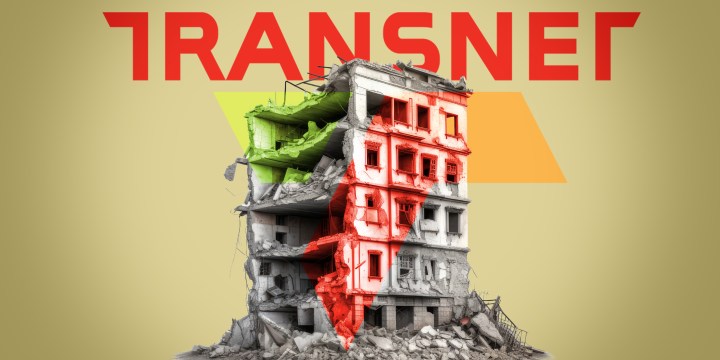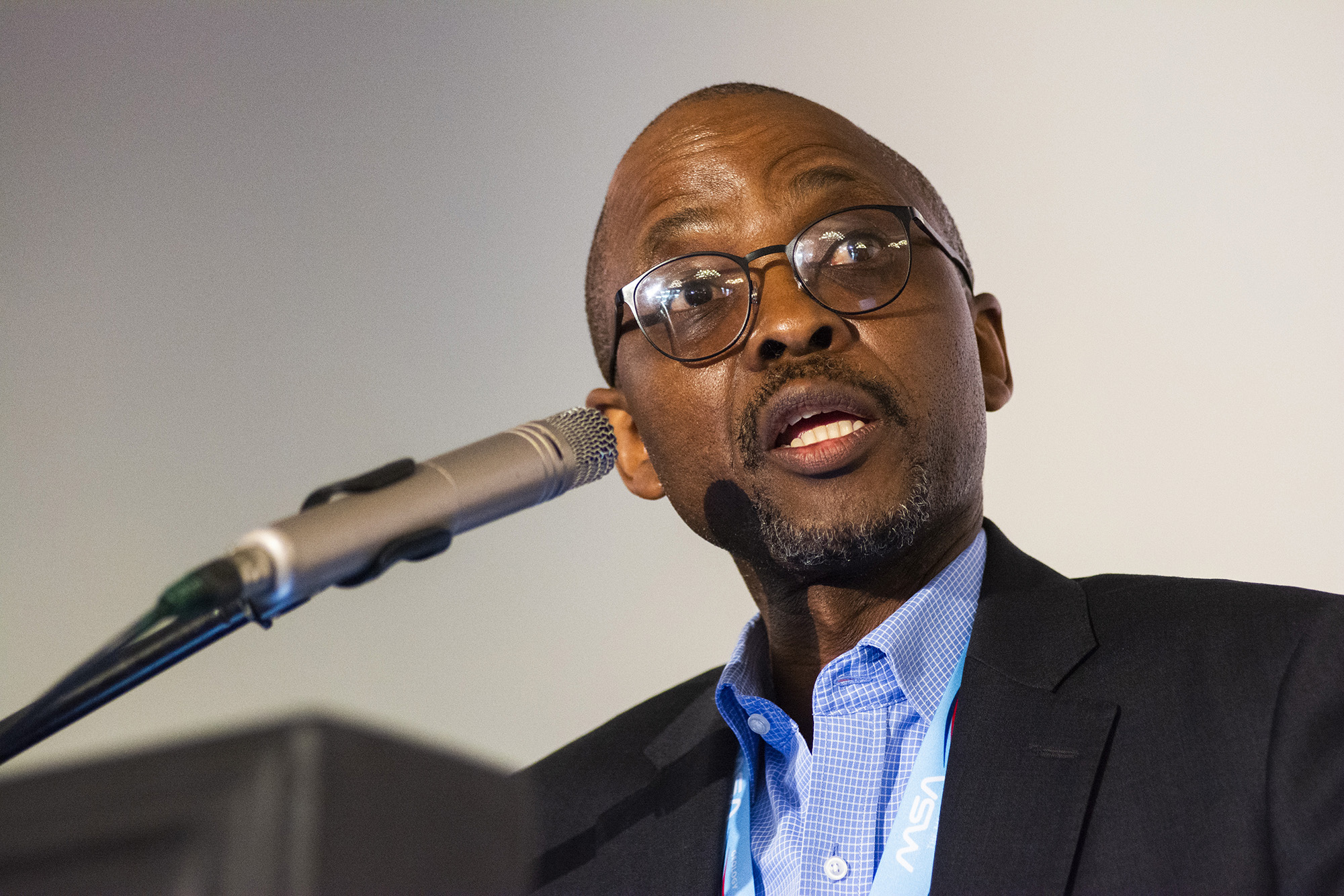JOBURG INDABA
Private-public logistics fix-it initiative notches up early wins at Transnet

Mining veteran Mxolisi Mgojo believes that the intervention between organised business and government to reform Transnet is resulting in the return of the SOE’s former workers, who are experienced and have technical skills but were recently retrenched.
Transnet, the troubled state-owned transport group, is still reeling from an exodus at its C-suite after the resignations of CEO Portia Derby, CFO Nonkululeko Dlamini and the head of rail operations, Siza Mzimela.
Outside of Transnet, it seems that interventions from the private sector to help reform the state-owned entity’s (SOE’s) operations are starting to gain good momentum.
Tired of seeing Transnet’s rail and port operations being unreliable and inefficient — costing the economy and public finances billions of rands — the country’s top CEOs partnered with the Presidency and other government officials to arrest the decline at the SOE.
And so in mid-2023, the National Logistics Crisis Committee (NLCC) was launched, a committee that is a joint initiative between the private sector and officials in the Presidency, which is closely scrutinising Transnet’s operations and intervening in turning around its failures.
The committee plays a support role to Transnet’s management and board, advising on its strategy to fix trains and ports and mobilise resources, such as skills and funding.
Mining veteran and former Exxaro Resources CEO Mxolisi Mgojo, who is on the NLCC, said the initiative was starting to clock up a few wins, including capaciting Transnet with logistics skills. To find logistics skills, Mgojo said the NLCC had approached former Transnet employees, who left the SOE after accepting voluntary severance packages (VSPs), to bring in their technical skills and institutional knowledge.
“We have a very strong and highly experienced technical team of individuals who have left Transnet but who know the inside and outside of Transnet. That was the first step we had to take,” Mgojo said on Wednesday at the Joburg Indaba organised by Resources 4 Africa.
There is a large pool of former Transnet staff to tap into. In 2021, 459 head office staff took VSPs in a drive by the SOE to cut costs. The exit of some of these workers — including long-serving and experienced engineers, financial managers and logistics professionals — has largely been seen as the main reason that Transnet has a dearth of skills.
In the past, committees between the private and public sectors have proposed many reform measures that were not implemented. But Mgojo said the difference this time is that there is an “accountability focus”, with a heightened requirement for the NLCC to demonstrate implementation progress to President Cyril Ramaphosa every six weeks. This delivery pressure has also been applied to Transnet’s management and the board.
“There is no place to hide. It is getting hot in there. I can tell you now, you get caught very quickly,” said Mgojo about the consequences of non-delivery.
The leadership exodus at Transnet, as seen in the resignations of Derby, Mzimela and Dlamini, is largely regarded as consequence management for non-delivery. Read more in Daily Maverick here and here.
The NLCC is also scrutinising the work of the newly appointed Transnet board. Public Enterprises Minister Pravin Gordhan has tasked the board to come up with a turnaround plan for reforming Transnet’s operational and financial situation.
The plan, which is set to find ways for Transnet to collaborate with rail and port operators in the private sector, and at the same time mobilise funding from the SOE (not from the fiscus), is set to be presented to the NLCC.
“There is no fiscus to support Transnet. Any future initiatives of Transnet will be supported by the private sector. The reforms around Transnet have to excite the private sector. Collectively, we are beginning to lay the foundation for reforms. The needle is beginning to move,” Mgojo said.
The intervention by the private sector in Transnet’s affairs has been criticised in some circles. While Transnet’s management and board are involved in the work of the NLCC, it has been argued by some market watchers that the SOE now has little say about its strategic direction, which is left to the Presidency, the highest level of government.
The Presidency is seen as no longer trusting reform progress to be left to Transnet’s management and board after many years of unfulfilled promises. But Rudi Dicks, the head of the Project Management Office in the Presidency, has pushed against such a view.
“We are not here to run Transnet. We are here to support executives in executing tasks and reforms. Transnet needs to have its own governance structure. But we want to guide Transnet to make the right decisions. We need to partner with organised business to get expertise and resources,” Dicks said at the Joburg Indaba. DM


















 Become an Insider
Become an Insider
Comments - Please login in order to comment.